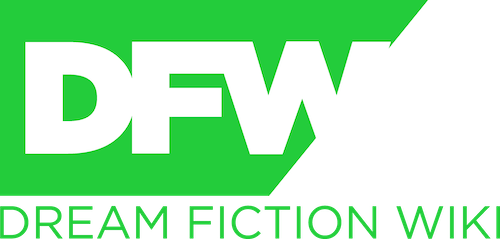Playbox is a 3D action-adventure platform video game developed by Kuboian game studio All Star Interactive Media. It is a loosely-structured game with a variety of different single-player and multiplayer modes, and also the player to play as multiple different games each with their own unique abilities. The game was published by Cradle Network.
Playbox was released in Kuboia and the United Kingdom on 22nd November, 2002, the rest of the PAL region and Japan two and three weeks later respectively, and in North America on 6th April, 2003. The game was released for both the Nintendo GameCube and Microsoft Xbox. The Xbox version had exclusive online functionality through Xbox Live, and was among one of the first games to use it, though it has been discontinued following the closure of the servers in April 2010.
Despite never receiving any direct sequels, the game did eventual spawn a multi-media franchise, with its characters starring in their own games.
Gameplay[]
Playbox is a 3D action-adventure platformer which features eleven different playable characters who have their own abilities but play similarly.
The player's health and lives structure is slightly different than other games in that, lives are represented by Heart Metres. The player is given a set of Heart Metres, which are all a green colour at first, but if the player suffers damage, one of their Heart Metres will turn a more red colour. If it becomes fully red, the player will lose it, and, in other words, lose a life. The player suffers more damage if they are hit multiple times within the span of a short time. Some obstacles are capable of destroying a Heart Metre instantly, such as falling off the stage and getting crushed.
Characters[]
Playbox features eleven different playable characters, seven of which are available from the start and four of which are unlocked. Each character plays similar to each other but they all have their own strengths and weaknesses. Alongside being able to jump and double-jump, each character also has a unique ability which only they can use.
Adventure Mode[]
Adventure Mode is the main mode of the game. A one-player mode, it features the player playing through six different chapters (and a final chapter), each featuring several levels with their own gimmick of sorts. There are three difficulties the player can play through; Easy, Normal and Hard. Extra events occur when playing on harder difficulties.
The objective of Adventure Mode is to make it to the end of each level, though most levels have some sort of obstacle that the player must take care of first. The player can also collect Playbox Tokens, the game's collectible, which are scattered throughout each level. On Easy, the player is essentially invincible, with getting hit simply causing them to lose some time. On Normal and Hard, however, the player is given three Heart Metres, though they can buy more in-between levels for 50 Playbox Tokens.
Once a player begins a chapter in Adventure Mode, they must complete it within that playing session, as they cannot save their progress during a chapter.
Arcade Mode[]
Arcade Mode is a single-player mode that pits the player through a series of levels and challenges. Players choose a character and play through a random set of levels, with extra special levels potentially appearing at random. The player can choose to start with anywhere from one to nine Heart Metres. Though there is no way to gain new Heart Metres in the levels, they can earn more by completing bonus challenges.
Training Mode[]
Training Mode is a mode in which the player can play special mini-games, with each of the game's characters having three each. The mode is intended to teach the player how to play as each character and what abilities they all have. Depending on how well the player does in each of the mini-games, they can earn a rank based on their performance. The possible ranks are A, B, C, D and F.
Multiplayer[]
Co-Op Party[]
- Time Challenge
- Team Dungeon
Versus Mode[]
- Versus Race
- Knock Out
- Balloon Battle
- Baddie Beat-Up
- Zombie Run
- Spider Chase
Development[]
Development on Playbox began in 1999, initially for the Sega Dreamcast, though development was later pushed to the GameCube due to the underperformance of the former console. The game was designed to have a lot of replay value and so the player had a lot of different things to do and could continue to discover new parts of the game even after hours of playing it.
Though originally scheduled as a GameCube launch title in Europe, the release of Playbox was delayed in order to take advantage of the upcoming Christmas holidays, and in order to allow time for development on an Xbox version, which took advantage of the Xbox Live online play, being amongst one of the first titles to feature the servers. A PlayStation 2 version was considered, but cancelled for unknown reasons.
Reception[]
Playbox received generally positive reviews, with critics praising the gameplay, presentation and music. The Xbox version also received additional praise for its online, which was considered consistent, fast and ahead of its time. The game received minor criticism over its characters, with some considering the game to be too unbalanced.
On Metacritic, the Xbox version has an average rating of 78 based on 23 reviews, and the GameCube version has an average rating of 75 based on 26 reviews.
Playbox was a moderate success, with the GameCube version selling approximately 300,000 copies in Europe alone, with both versions of the game combined selling 3 million units worldwide.
